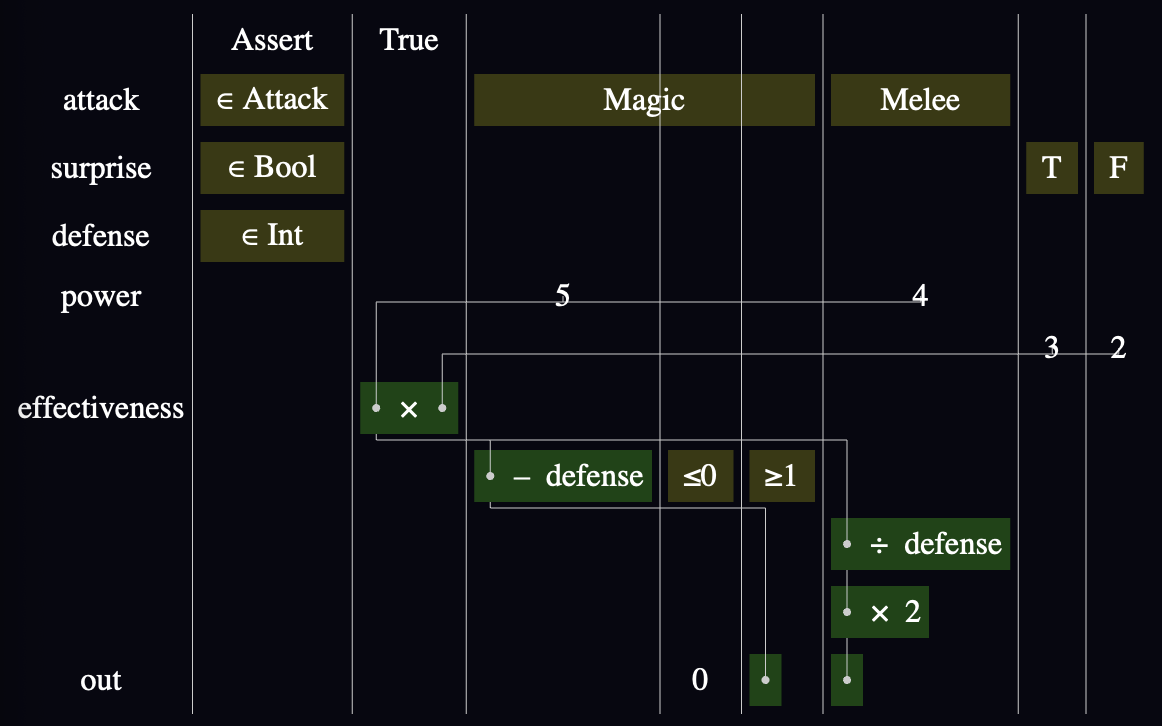✉️ Not subscribed yet? Subscribe to the Newsletter
Future of Coding Weekly 2024/11 Week 3
2024-11-18 10:24
🎥 A New Kind of Spatial Computer 📘 Live Coding: A User's Manual 🎥 Single File Notebooks
Two Minute Week
💬 Marek Rogalski
Developing without a GUI framework comes with a risk of falling into some deep rabbit holes. This one is about exploiting the slowness of some widgets to create a sort of "Into the Spider-Verse" animation effect.
🎥 Export Observable notebooks as single self-sustainable offline files. via Tom Larkworthy

The self-sustaining single file observable notebook export format is ready and implemented in userspace
Our Work
📝 Dialogues on Natural Code | Proceedings of the 2024 ACM SIGPLAN International Symposium on New Ideas, New Paradigms, and Reflections on Programming and Software via Lu Wilson
My first ever proper academic publication!!!!
It's called "Dialogues on Natural Code" — an essay that Dave Ackley and I wrote together
I'd be really grateful if you could give it a read. I promise it's not boring
Also it's a stage play
Devlog Together
🎥 Edited via Paul Tarvydas

Revelation: I like to think in terms of UNIX pipelines. 0D is like UNIX pipelines, but, 0D is more efficient and 0D allows many more input and output ports in software components. Using UNIX's stdin , stdout and stderr are not enough in the presence of multiple ports. It looks like JSON might fit the bill, though. I know from previous experience that SWIPL (a PROLOG) can cast its results to JSON. I imagine that any modern programming language can produce JSON. I hope to poke at this idea of using JSON instead of using raw, unstructured text like stdout in hopes of creating a cheapo multi-language REPL.
💬 Jason Morris
Incidentally re-read something I wrote in October of '23, and realized that I am still working on implementing those same thoughts today. The thing I wrote about then has been an evenings and weekends project for me since, and I am hoping to have a version live for people to play with early in the new year. Is 15 months too long to go between releases? 😅
💬 Pietu
Hi again 👋.
I've recently started a project to try out some of the ideas I've had regarding markdown and writing. The approach i've taken is to implement my own markup language with some interesting properties.
The perspective this time is, "why should a piece of content be represented as one thing". A list is a list, an image is an image, a quote is a quote. Could we somehow compose these to make eg. a "code quote".
This time, i've got a bare-bones video demoing how blocks of content can be composed.
📝 Programming Language Workbench - Beginnings via Paul Tarvydas
Inspired by my previous REPL experiments, I’ve begun playing around with a more complicated example - a programming language workbench.
💬 Tom Lieber
The layout in this next prototype is complicated enough that I finally got around to some automatic layout.

💬 Tom Lieber
A few debug passes, and it renders schematic tables!

Thinking Together
📝 Nilesh Trivedi (@nilesh.trivedi.link) via Nilesh Trivedi
Somewhat off-topic but I saw a lot of people moving to BlueSky, decided to read up on the underlying AT protocol and its promise of decentralization and found things I did not like. Posted some thoughts.
💬 Sam Gentle
Random thought about Things Spreadsheets Got Right – I've heard a lot about "no invisible state" etc, but another interesting thing about spreadsheets is that they treat data as a first-class citizen in a way that most programming models don't.
In a conventional programming language, you model processes and leave the data implicit; in a spreadsheet, you model data and the processes are implicit. The data is what you see in the cells, and the processes are plumbing that you only see by inspecting the cell that the data lives in. What other programming systems start with the data you want to process before you write the process itself?
And maybe spreadsheet programming's lack of implicit state is actually a consequence of this data-first paradigm, rather than an end in itself. In fact, even calling data "state" implies a kind of process-first mindset, only conceptualising data through its relation to a process. And this could be a key blind spot for programmers creating systems for non-programmers, or rather process-first people creating systems for data-first people.
Content
🤖 AI Makes Tech Debt More Expensive via Steve Dekorte
I've been thinking a lot about this in the last 6 months and ran across this today: 📝 AI Makes Tech Debt More Expensive
AI increases the penalty for low quality code
🎥 A New Kind of Spatial Computer via Taylor Troesh

📘 Live Coding: A User's Manual via Lu Wilson
Lots of nuggets of wisdom in this book about live coding
📝 Live Coding: A User's Manual
Live Coding: A User's Manual, published by MIT Press
Present Company
📝 Modo End of life extended license via Ivan Reese
If anyone wants a free production-grade 3D modelling/animation/rendering tool, the venerable Modo just got end-of-life'd and the company is giving everyone a free 10-year license.
Sure, Blender exists — but for us HCI-inclined folks this is a rare opportunity to casually check out how a different team approached this corner of the GUI possibility space. I personally find 3D modelling tools to be hugely inspirational, and frequently draw on my experiences with them when designing programming systems. If you've never kicked the tires on one of these, or only have experience with Blender, CAD, or game engines, Modo is a really interesting point of comparison.
EOL announcement and free license: campaigns.foundry.com/modo-eol-license
Download (requires a free account): foundry.com/products/modo/download
👨🏽💻 By 🐘 @[email protected] 🐦 @warianoguerra
💬 Not a member yet? Check the Future of Coding Community
✉️ Not subscribed yet? Subscribe to the Newsletter / Archive / RSS
🎙️ Prefer podcasts? check the Future of Coding Podcast